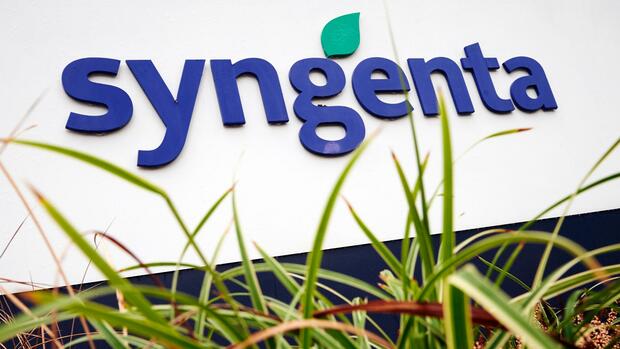Chemchina bought Syngenta in 2015 for $43 billion and took the company private.
(Photo: AFP)
Zurich The move is intended to quickly get one of the foreseeable largest IPOs of the year off the ground: On Friday, the Shanghai Stock Exchange accepted the application from the Swiss agrochemical giant Syngenta for a listing on the main trading venue, as the company confirmed.
According to financial circles, Syngenta, which is controlled by Chinese owners, wants to take the equivalent of more than nine billion dollars with the IPO on the so-called “Main Board” and is aiming for a valuation of around 60 billion dollars. If everything goes according to plan, the stock market listing could take place in autumn 2023. In the currently weak initial public offering (IPO) market, it will probably be the top deal of the year.
Syngenta previously withdrew its application for a listing on the Shanghai technology exchange Star Market. The background was unexpected delays in the approval process. The seed and crop protection group had hoped for a less bureaucratic process from the largest Chinese tech exchange.
At the end of March, a hearing before the supervisors of the Star stock exchange was scheduled. Within the company, this was considered a formality, which would enable an IPO in the first half of 2023. But the supervisors canceled the hearing surprisingly and without giving a reason.
Syngenta had found it difficult to justify a listing on this trading venue anyway, since it is designed for smaller tech stocks. Since the launch of the stock exchange plans two years ago, Syngenta has increased its sales by around ten billion dollars to more than 30 billion – and is actually too big for the Star Market.
Strong market position in China
In the meantime, the conditions for admission to the main trading center in Shanghai have been reformed. Syngenta said it had decided to change its focus following regulatory changes in China to make it easier to differentiate between different stock segments. As a leading global agricultural technology company, a listing on the main board is more appropriate. “This listing will give Syngenta Group access to more diversified investors and will have a positive impact on the long-term value of the company,” the group said.
It will be a comeback in the stock market for the producer of crop protection products. The Chinese state-owned company Chemchina took over the Basel company in 2015 for $43 billion and took it off the stock exchange in 2017.
Chemchina then founded the Syngenta Group and brought its own crop protection, seed and fertilizer businesses under its umbrella. The group also includes the Israeli Adama, which specializes in imitation products of off-patent crop protection products.
In this constellation, Syngenta is the largest agricultural supplier in the world with sales of 33 billion dollars. In 2022, Bayer’s agricultural business had revenues of the equivalent of $27 billion. However, the Leverkusen-based company does not include its fertilizer business in agrochemicals.
>> Read also: How genetic engineering could protect agriculture from drought
The Chinese owner of Syngenta is under pressure at the IPO to achieve a valuation above the purchase price paid in 2015. However, the company sees itself well prepared for an IPO. The group was able to significantly increase profit and sales in 2022.
Revenues increased 19 percent year-on-year to $33.4 billion. Pre-tax profit (Ebitda) climbed 20 percent to $5.6 billion. The first quarter of 2023 was also promising for the group, although exchange rate effects wiped out some of the gains.
Syngenta expects further growth from its strong market position in China. There, the group has set up local distribution centers via the so-called “Modern Agricultural Program” (MAP) in which seeds, pesticides and feedstuffs are sold to small farmers, but training and financing are also offered.
The number of these MAP centers increased by 124 to 638 nationwide in the first quarter of 2023. With these, Syngenta is already generating sales of 1.1 billion dollars in China, which corresponds to growth of 62 percent compared to the same quarter of the previous year.
Modernizing domestic agriculture and securing feed for China’s meat industry is also of great importance to the country’s political leadership. Therefore, the state-owned company Chemchina wants to keep a large stake in the Syngenta Group even after the IPO.
More: Bayer competitor Syngenta is growing strongly – and is getting closer to an IPO worth billions
